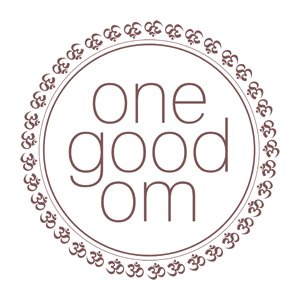What’s Your Story? A Practice.
Years ago, back when I was an actor, a dear friend and fellow actor would ask "What's your story?” whenever I came into the rehearsal hall or dressing room. I always liked that. Different from the obligatory "how are you?" the question seemed more probing, as if she really wanted to know what I was going through. I didn't realize at the time that, years later, this question would become a mindfulness practice that I call "What's my story?"
As I continually develop my meditation practice, I’m always looking for ways to translate its benefits into my day-to-day life. Truthfully, staying present is no easy task for me so when I realize I’ve gone into the fantasy of reliving the past or imagining the future, I pause and ask, “What’s my story?” Most of the time my story is based on some small seed of truth, and then my (very) creative consciousness produces a fantastic, dramatic, action-packed script.
Like today, I was four minutes late for a new private client. I'm on the 6 train thinking, "I hope she's not upset that I'm late. I hope she doesn't think I'm some kind of slacker, disrespectful of her time… I really should have left earlier, I mean I didn’t leave late but… stupid MTA, you can’t count on it anymore. I should have gotten up earlier. I really have to start going to bed sooner. I really didn’t need to stay up to see who got cut from American Idol. That choice really did not better my life in any way. Why do I sabotage myself like that? I need to make taking better care of myself a priority. I mean I’m 50 years old, when am I gonna get my sh*t together?”
Suddenly I was there, ringing her bell. I was 2 minutes late. She was happy to see me. None of what I had created in my head was real (except maybe the bit about the MTA) and in the mean time, I missed an entire 20 minutes of my day. I missed the opportunity to connect with myself, with others.
Here’s the most exciting bit about this though: I created these thoughts. Me. We are wonderfully creative and imaginative beings, us humans and once we recognize that, we can start using our creative power for good instead of evil. How? That’s always the trick. It’s great to recognize where we’ve gotten off track, but that’s just half the battle. How do we drop the story, get back to reality and try to prevent from getting derailed over and over? I use what I call the ABCD method.
B.
Breathe.
Always a good place to start. Feel your feet under you and take three deeps ones.
C.
Contemplate.
Look at the seed of truth in the story. Like a detective, look under the thoughts and emotions that are whirling around and look for what’s real. The truth in this story is, I was a little late. By not leaving enough time and space to make the commute, I became anxious and let my creative power whip my thoughts into a frenzy.
A.
Act.
Let it go and move forward. Ask, “What are the possible preventative steps for next time?” The obvious one here is, leave earlier. Or if I don’t leave earlier, I could set the intention to practice mindful breathing for the entire commute.
D.
Drop it.
Drop the story. See the truth and let everything else go.
(Okay, so the ABCD is out of order but it totally works.)
What's YOUR story? Look for the seed of truth beneath the story and work from there. Don’t beat yourself up for it. Celebrate the creative power within, and then direct it toward a more beneficial outcome.
